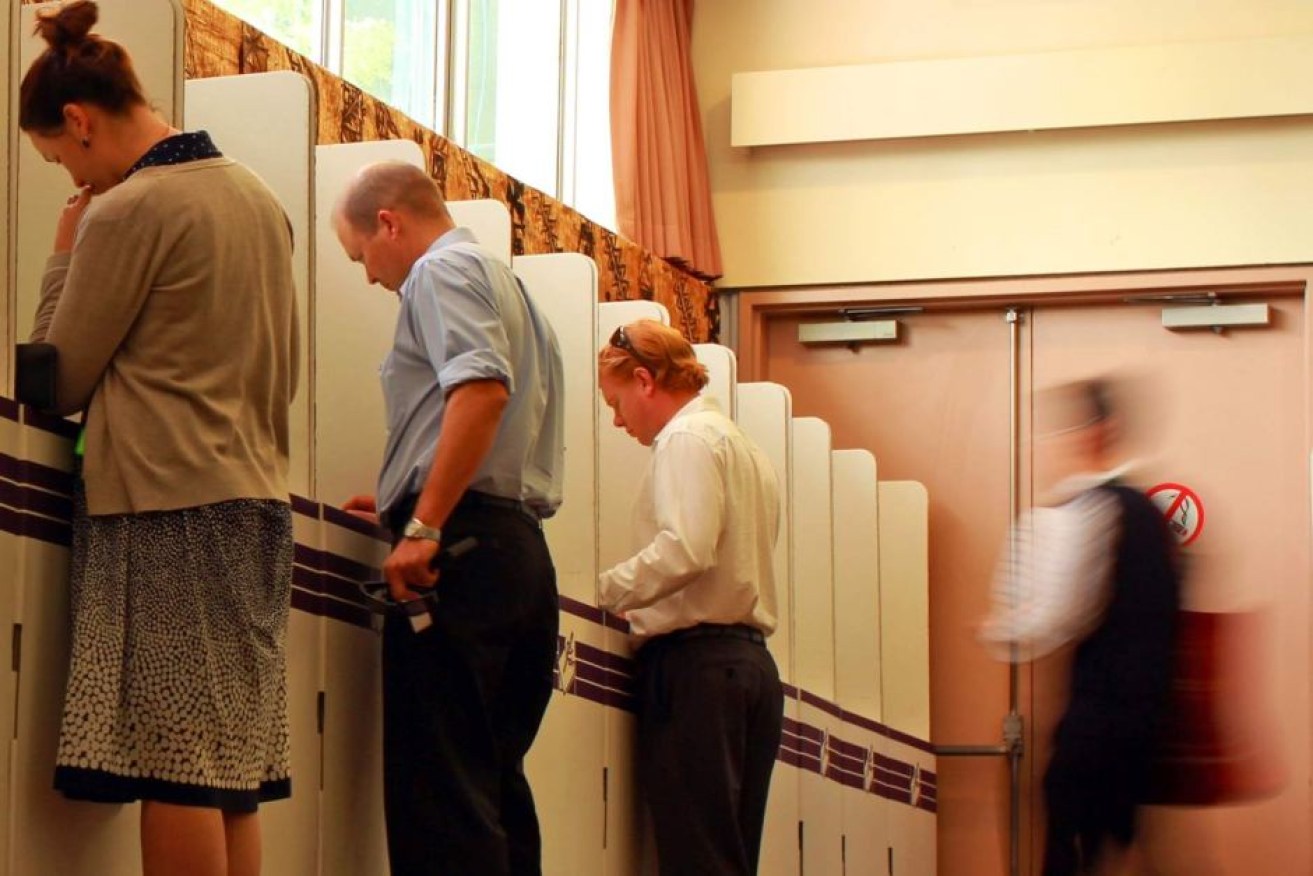Parliamentary inquiry recommends new rules for voters

ABC
Voters turning out at next year’s federal election could have to show identification and – for the first time in almost a century – be legally provided with a pen instead of a pencil.
These are among the 24 recommendations of a lengthy parliamentary inquiry into the troubled 2013 election.
Parliament’s Joint Standing Committee on Electoral Matters has released its final findings on the $191 million election, which ended with Western Australian voters returning to the polls for a second time to elect the state’s six senators.
• Honeymoon continues for new premiers: poll
• PM scraps corporation tax cut
• Tunnel cancelled for $339m
But the final report has caused a split between the Coalition on one side, and Labor and the Greens on another, over two proposed changes to electoral law:
The need to show voter identification at the booths and;
An automatic voter enrolment process used by the Australian Electoral Commission (AEC).
Parties clash over identification, automatic enrolment
The Coalition, led by Liberal MP Tony Smith, favours a new requirement to “present a form of acceptable identification to be used with an ordinary pre-poll or election day vote”.
The presentation of a driver’s licence, bank statement or rates notice was compulsory at this year’s Queensland election and the JSCEM heard it worked to reduce cases of questionable voting.
Mr Smith wants the same regime applied federally.
“It’s something I think should become law, it’s something the voters would like to become law,” he said.
“Most voters find it bizarre you’re asked for ID to get a parcel at the Post Office, but when it comes to our democratic duty … there’s no check at all,” he said.
But Labor and the Greens have filed a dissenting report, pointing to a fall in voter turnout in Queensland under the ID system and warning: “if such a drop in turnout were to result at the next federal election, more than 165,000 Australians may be excluded from the electoral contest”.
“This would not be a positive development in our democracy,” it said.
The Coalition is also at odds with Labor and the Greens on a process known as “automatic enrolment.”
Currently, the AEC uses data matching from Government agencies to uncover people of voting age who have not placed themselves on the roll.
The adults are then enrolled automatically by the AEC.
The Coalition wants a form of consent in the process before voters are added to the roll, while Labor and the Greens favour waiting for an AEC review before making any changes to the process.
Recommendations from JSCEM election reviews usually lead to changes to the Electoral Act and this year’s report looks set to change a 97-year-old feature in the voting booth.
Since 1918, the Act has demanded that electoral officials “furnish voting compartments with a pencil”.
But complaints by Clive Palmer and other submissions have prompted the Committee to unanimously conclude “the operational norm should be for pens” and to unanimously recommend “the provision of pens should be the default option”.
Publication of the Committee’s final report has also reignited a dispute with minor parties and independents in the Senate.
Since last year, a clear majority of committee members have favoured optional preferential voting for “above the line” voting, partial preferential voting below the line, and the abolition of group voting tickets for Senate ballots.
If passed into law, the changes would be likely to make the election of micro-party candidates and independents with votes as low as 1.3 per cent much harder.
– ABC







